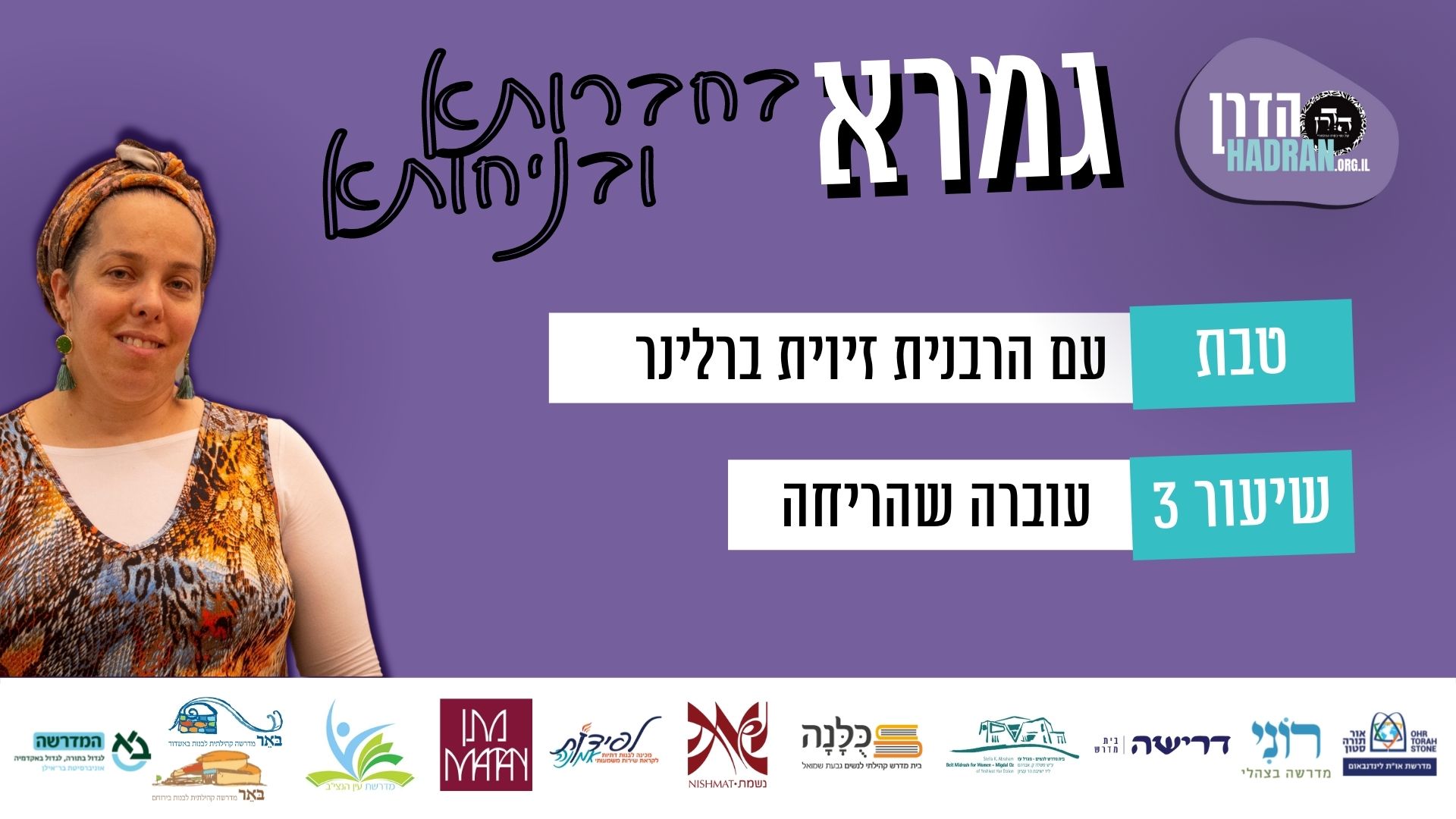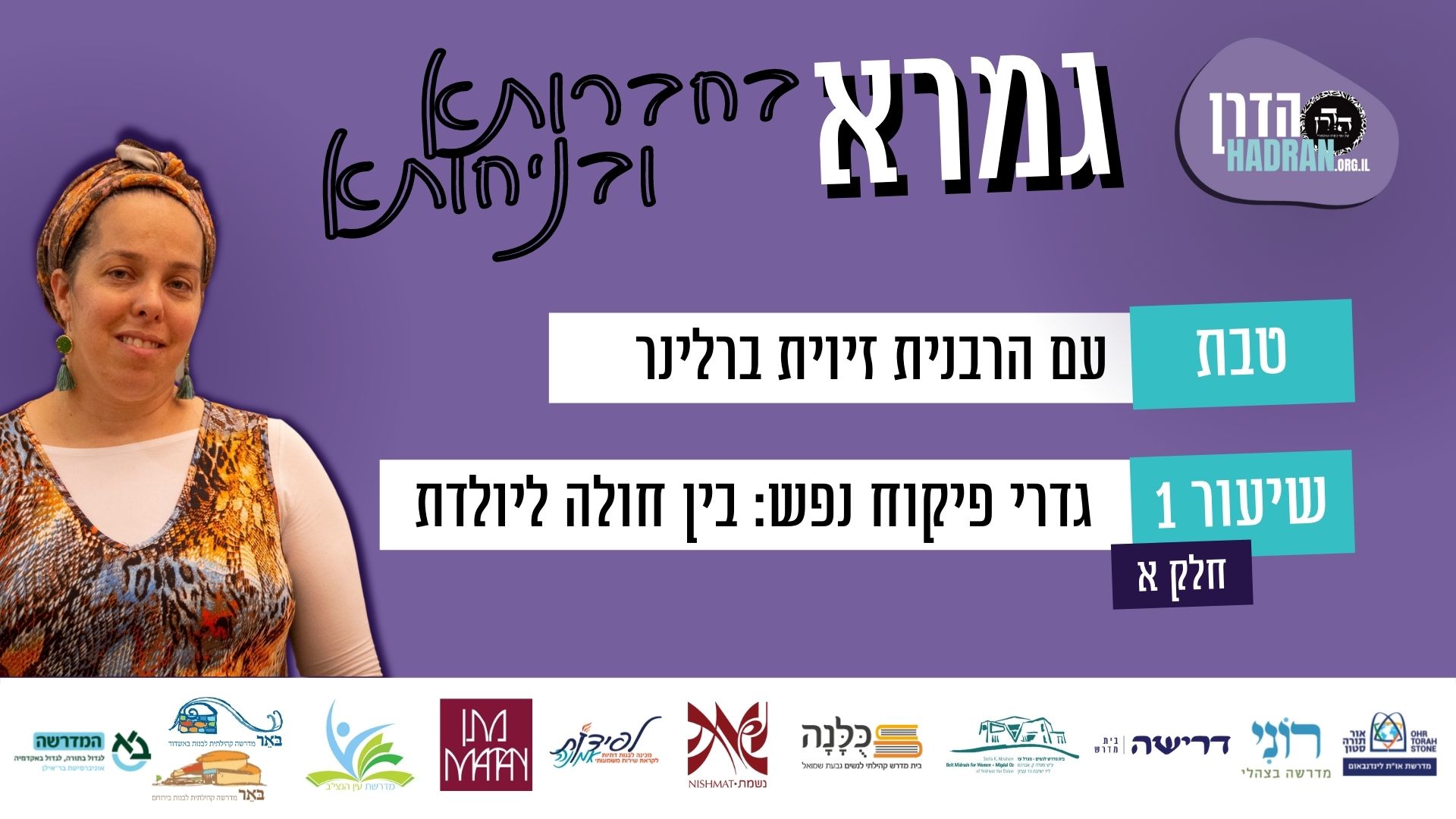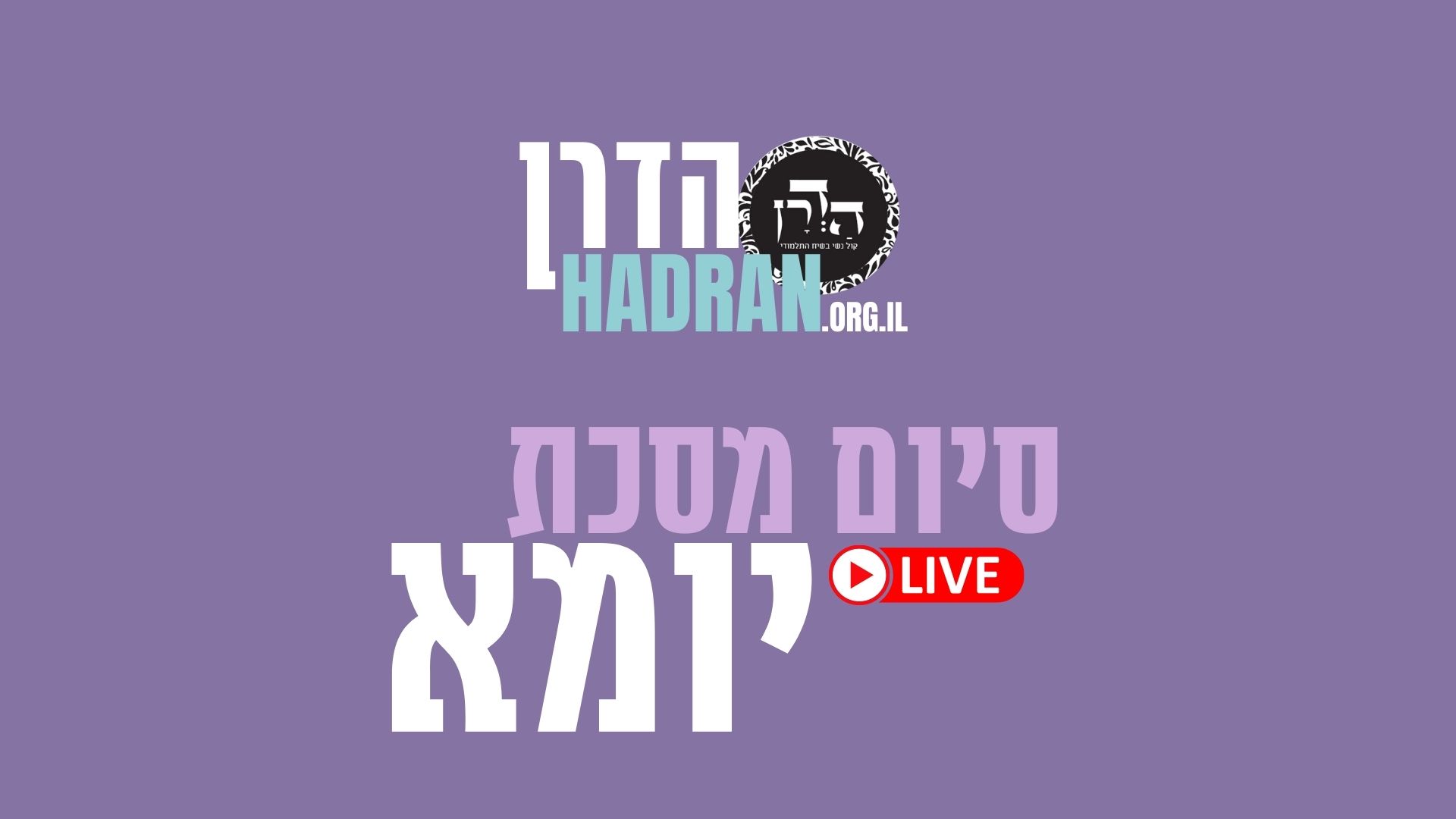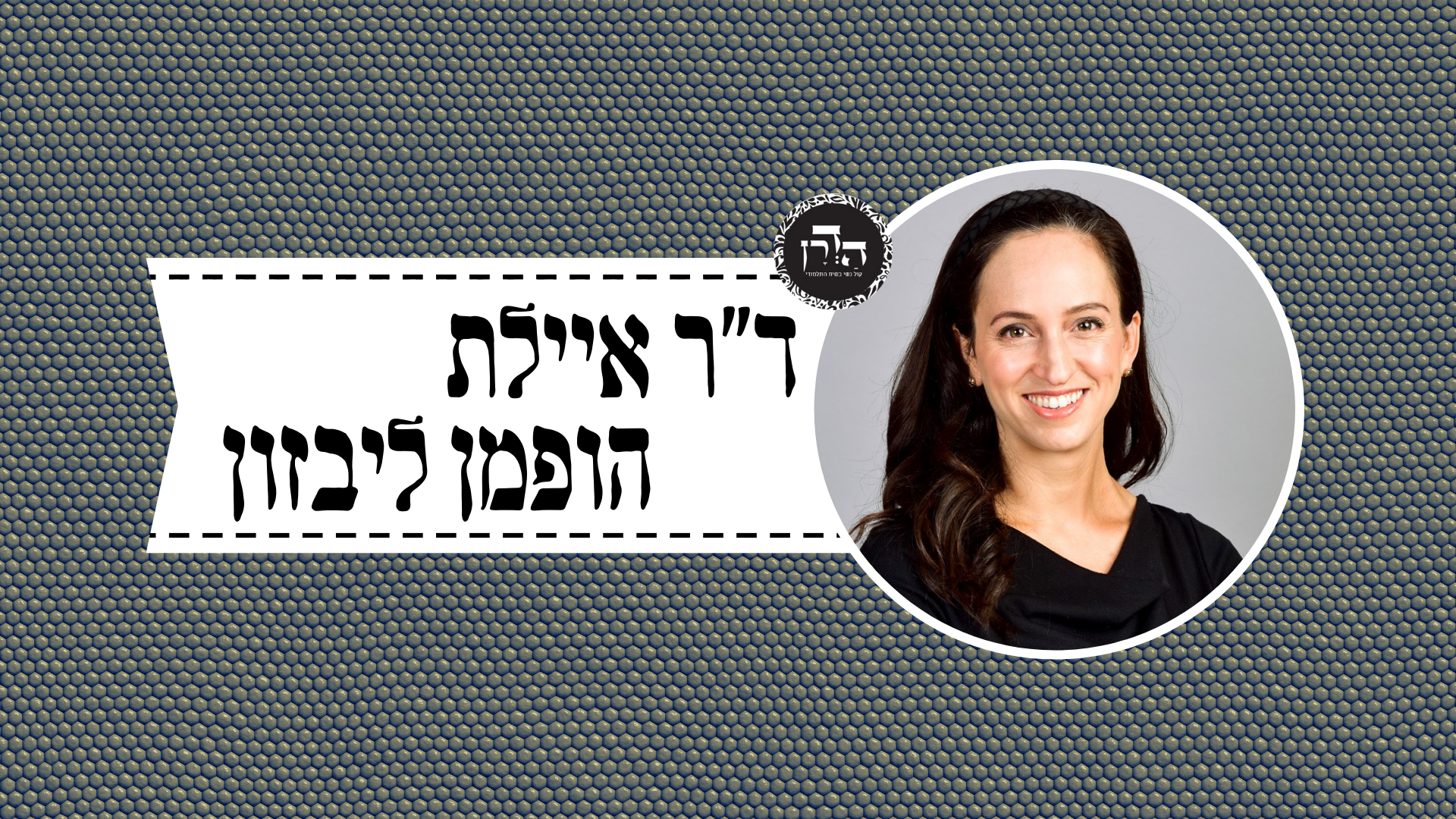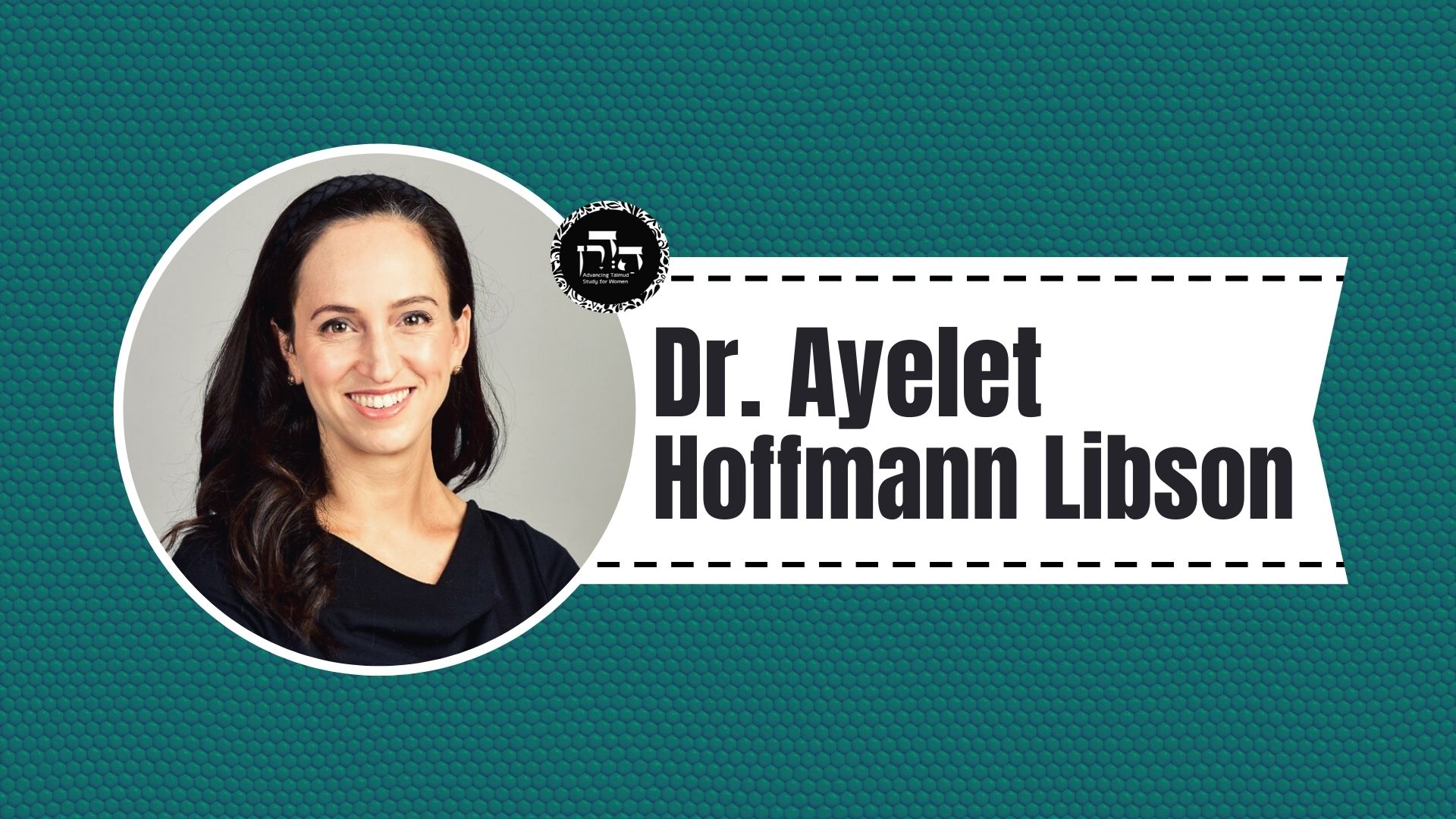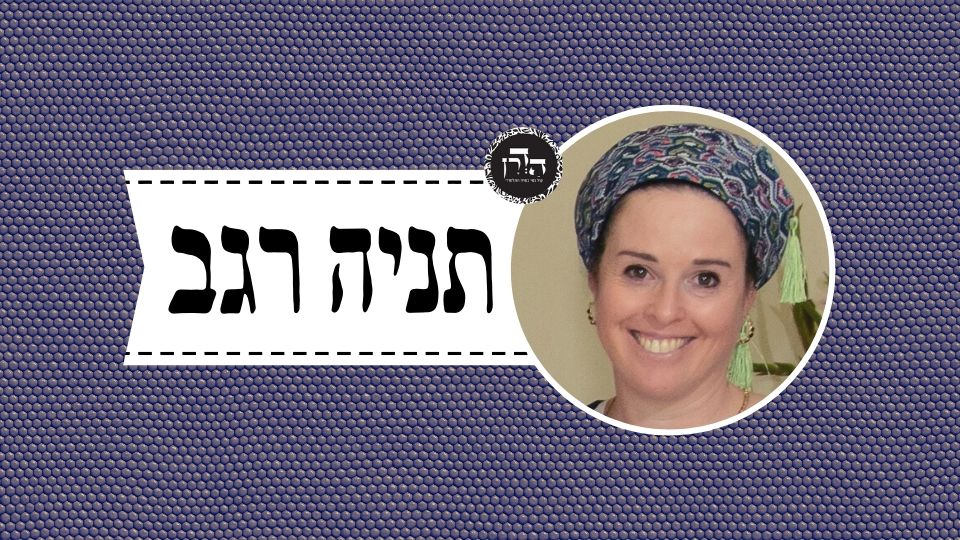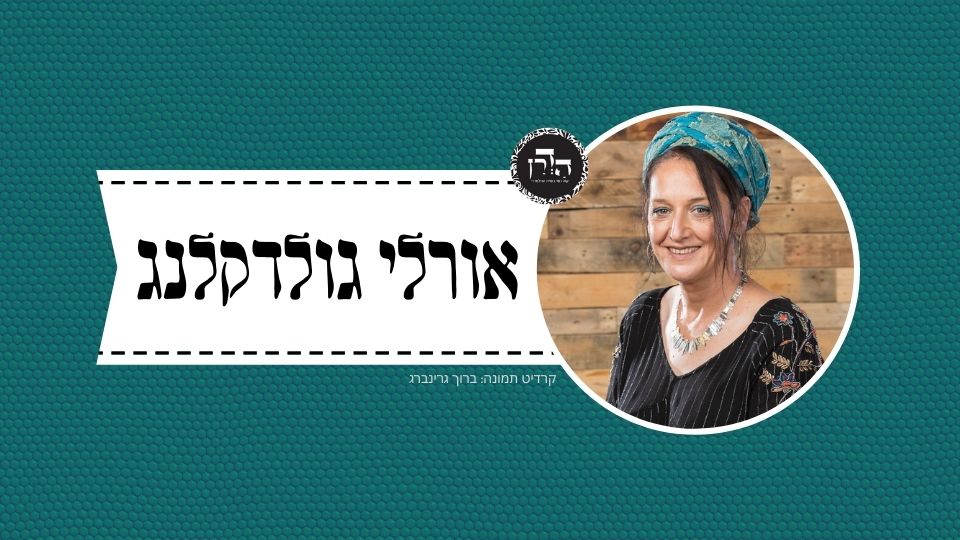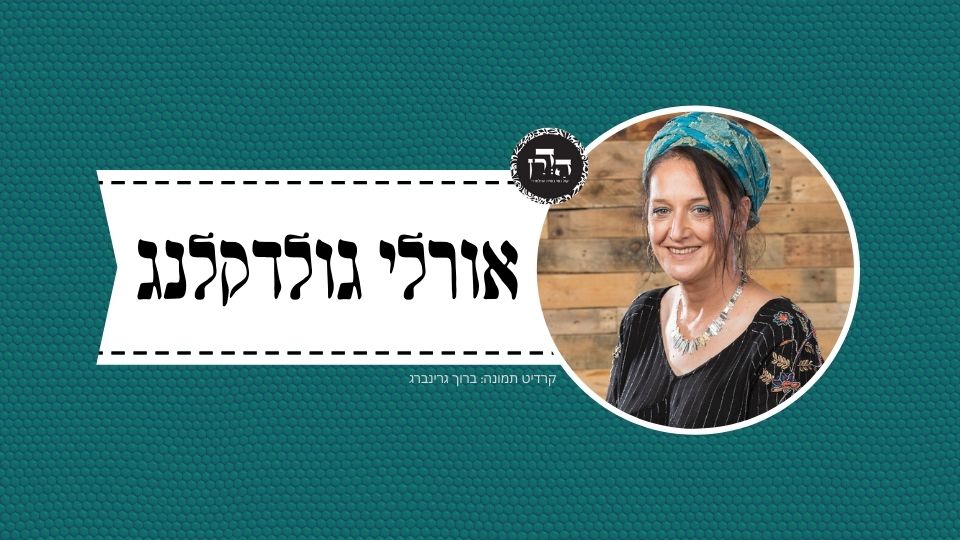בדרך כלל השיעור לאכילה הוא כזית אבל הברייתא מביאה יוצא מן הכלל שהוא טומאת אוכלים בכביצה ונלמד משינוי בלשון בפסוקים. מביאים חיזוק לרעיון שכשיש שינוי בלשון יש שיעור שונה מיום כיפור. כיצד יודעים שטומאה דווקא בביצה ולא בשיעור אחר, ולמה דווקא ביצה של תרנגולת. מביאים את דברי רבי אלעזר הקובע שעלינו לרשום שיעורי האיסור אותם אנו אוכלים בעבור בית דין שעתיד לבוא וישנה את השיעורים ואולי נתחייב בקרבן. ממשיכים במחלוקת רבי יוחנן ואחרים האם שיעורים הם הלכה למשה מסיני או לא. שיעור נוסף הנידון הוא "מלא לוגמיו”, מה בדיוק הכוונה? "לוגמיו” של מי? הגמרא מביאה הכרעה עקרונית לגבי השאלה הזו – שביום הכיפורים שאלת האכילה והשתייה היא "כדי שתתישב דעתו של אדם” אז למה השיעור לא מבוסס על המידה של אותו אדם? האם השיעור זמן שבן אוכלים שיעור נמדד ביום כיפור בכדי אכילת פרס למרות שכותבת יותר גדולה מכזית? חוזרים למשנה – על מנת לאכול ככותבת לא צריך להיות מאותו הדבר אלא מאכלים מצטרפים. איך מחשיבים רוטב של אוכל – כאוכל או שתייה? האוכל אכילה גסה נחשב כאכילה שאין בה הנאה – האם חייב ביום הכיפורים? מה הדין לזר שאכל תרומה אכילה גסה?
הלימוד החודש מוקדש לרפואת פיליס הכט, גיטל פעשא בת מאשה רחל על ידי חברותיה הרבות שאוהבות ומעריכות אותה.
רוצה להקדיש שיעור?

כלים
הלימוד החודש מוקדש לרפואת פיליס הכט, גיטל פעשא בת מאשה רחל על ידי חברותיה הרבות שאוהבות ומעריכות אותה.
כלים
העמקה
רוצה להבין מה באמת קורה מתחת לפני השטח של הסוגיה?
שיעורים, פודקאסטים והרחבות של מיטב המורות שלנו יפתחו לך עוד זוויות וכיווני חשיבה.
חדשה בלימוד הגמרא?
זה הדף הראשון שלך? איזו התרגשות עצומה! יש לנו בדיוק את התכנים והכלים שיעזרו לך לעשות את הצעדים הראשונים ללמידה בקצב וברמה שלך, כך תוכלי להרגיש בנוח גם בתוך הסוגיות המורכבות ומאתגרות.
פסיפס הלומדות שלנו
גלי את קהילת הלומדות שלנו, מגוון נשים, רקעים וסיפורים. כולן חלק מתנועה ומסע מרגש ועוצמתי.
יומא פ
כׇּל הַשִּׁיעוּרִין כּוּלָּן בִּכְזַיִת, חוּץ מִטּוּמְאַת אוֹכָלִין, שֶׁשִּׁינָּה הַכָּתוּב בְּמַשְׁמָעָן, וְשִׁינּוּ חֲכָמִים בְּשִׁיעוּרָן. וּרְאָיָה לַדָּבָר — יוֹם הַכִּפּוּרִים. מַאי שִׁינָּה הַכָּתוּב בְּמַשְׁמָעוֹ — מִ״לֹּא תְעוּנֶּה״, וּמַאי שִׁינּוּ חֲכָמִים בְּשִׁיעוּרֵיהּ — כְּכוֹתֶבֶת.
All the measures in the Torah connected to eating are the volume of an olive-bulk, except for the amount of food that renders objects impure, because the verse changed its expression in this case, and the Sages altered the measure accordingly. The proof of this, that the Sages gave it a different measure because the verse used different language for it, is from Yom Kippur. Also in the case of Yom Kippur the Sages assigned a different measure because the verse used a different phrase. The Gemara asks: How did the Sages learn that the verse changed its expression? They learned from: “Any soul which shall not be afflicted” (Leviticus 23:29). The verse does not state: Any soul that shall eat, but rather: “Any soul which shall not be afflicted.” How did the Sages change its measure? One does not violate the prohibition unless he has eaten the volume of a large date-bulk, as opposed to the usual olive-bulk.
וּמַאי רְאָיָה לַדָּבָר יוֹם הַכִּפּוּרִים? דְּאִי מֵהָתָם, הֲוָה אָמֵינָא: אוֹרְחָא דִקְרָא הוּא.
The Gemara asks: And what does the baraita mean when it says: A proof for this is from Yom Kippur? Why is the verse pertaining to ritual impurity not sufficient to show that the Sages changed the measure based on the different words in the verse? The Gemara answers: If we learned it only from there, the case of impurity, I would have said that that is the style of the verse, and no halakha can be derived from it. Therefore, the verse pertaining to Yom Kippur teaches that whenever a verse deviates from the usual language, it implies a change in the halakha as well.
טוּמְאַת אוֹכָלִין כְּבֵיצָה מְנָלַן? אָמַר רַבִּי אֲבָהוּ אָמַר רַבִּי אֶלְעָזָר: דְּאָמַר קְרָא: ״מִכׇּל הָאוֹכֶל אֲשֶׁר יֵאָכֵל״, אוֹכֶל הַבָּא מֵחֲמַת אוֹכֶל, וְאֵיזֶה — זֶה בֵּיצַת תַּרְנְגוֹלֶת. וְאֵימָא גְּדִי! מְחוּסָּר שְׁחִיטָה. וְאֵימָא בֶּן פְּקוּעָה! טָעוּן קְרִיעָה.
§ The Gemara asks: From where do we derive that the measure for impure foods is the volume of an egg-bulk? Rabbi Abbahu said that Rabbi Elazar said that the verse states: “Of all food [okhel] which may be eaten [ye’akhel], on which water comes shall be ritually impure” (Leviticus 11:34). The double usage of the root akhal teaches that the ritual impurity of food applies even to the amount which can be described as food that comes on account of food, i.e., food that comes from another food. And which food is that? A chicken egg. The Gemara asks: And say it is referring to a kid, which comes from a mother goat, and is therefore also food that comes from another food. The Gemara answers: It lacks ritual slaughter. The young goat is not yet food, since it is not edible until it has been slaughtered. The Gemara asks further: And say it is referring to a ben pekua. Since the slaughter of its mother made it fit to eat, the fetus itself need not be slaughtered, even if it survives and continues to live independently of its mother. The Gemara answers: The calf still requires cutting, since it cannot be eaten live, but it does not require ritual slaughter.
וְאֵימָא בֵּיצַת בַּר יוֹכָנִי! תָּפַסְתָּ מְרוּבֶּה לֹא תָּפַסְתָּ, תָּפַסְתָּ מוּעָט תָּפַסְתָּ. וְאֵימָא בֵּיעֲתָא דְּצִיפַּורְתָּא דְּזוּטַר טוּבָא!
The Gemara asks: Even if we claim that the measure for impure foods is an egg-bulk, one could say it is referring to the giant egg–bulk of the bird called bar yokhani. The Gemara answers: If you grasped many, you did not grasp anything; if you grasped few, you grasped something. This means that in a case of doubt, take the smaller number, as it is included in the larger number. Therefore, the correct measure is the volume of a chicken egg. The Gemara questions this: If so, say it is referring to a very small bird’s egg. Consequently, no proof can be brought from the verse that the volume of a chicken egg is the measure for ritual impurity.
רַבִּי אֲבָהוּ דִּידֵיהּ, אָמַר: ״מִכׇּל הָאוֹכֶל אֲשֶׁר יֵאָכֵל״, אוֹכֶל שֶׁאַתָּה אוֹכְלוֹ בְּבַת אַחַת. וְשִׁיעֲרוּ חֲכָמִים: אֵין בֵּית הַבְּלִיעָה מַחֲזִיק יוֹתֵר מִבֵּיצַת תַּרְנְגוֹלֶת.
Rabbi Abbahu himself said: The verse states: “Of all food which may be eaten.” This is referring to food that you can eat at one time. The Sages estimated: The esophagus cannot hold more than the volume of a chicken’s egg, and therefore this is the measure used for the ritual impurity of foods.
אָמַר רַבִּי אֶלְעָזָר: הָאוֹכֵל חֵלֶב בִּזְמַן הַזֶּה צָרִיךְ שֶׁיִּכְתּוֹב לוֹ שִׁיעוּר, שֶׁמָּא יָבֹא בֵּית דִּין אַחֵר וְיַרְבֶּה בְּשִׁיעוּרִין.
Incidental to the discussion on Torah measures, Rabbi Elazar said: One who unwittingly eats forbidden fat even today must write down the exact measure that he ate, lest another court come in the future and increase the measure.
מַאי יַרְבֶּה בְּשִׁיעוּרִין? אִי נֵימָא דִּמְחַיְּיבִי קׇרְבָּן אַכַּזַּיִת קָטָן, וְהָתַנְיָא: ״אֲשֶׁר לֹא תֵעָשֶׂינָה בִּשְׁגָגָה וְאָשֵׁם״, הַשָּׁב מִידִיעָתוֹ — מֵבִיא קׇרְבָּן עַל שִׁגְגָתוֹ.
The Gemara asks: What does it mean to increase the measure? If we say that a future court will obligate him to bring an offering even for the bulk of a small olive, which is less than what is considered an olive-bulk today, he would not be liable to bring a guilt–offering. Wasn’t it taught in a baraita: It was said with regard to guilt-offerings: “And if any one of the common people sin through error, in doing any of the things which the Lord has commanded not to be done, and be guilty” (Leviticus 4:27)? This teaches that one who repents due to his awareness, i.e., one who repents following becoming aware that he performed a transgression, brings an offering for his unwitting transgression.
לֹא שָׁב מִידִיעָתוֹ — אֵין מֵבִיא קׇרְבָּן עַל שִׁגְגָתוֹ.
However, one who does not repent due to his awareness that he sinned does not bring an offering for his unwitting action. Similarly, if one eats less than an olive-bulk, based on the current measures, he will not be obligated to bring a guilt-offering in the future if the measures change, even if the amount that he ate equals the volume of a revised olive-bulk. This is because the individual would not be bringing his offering because he became aware he had sinned, but because the Torah measures had been changed.
אֶלָּא: דְּלָא מְחַיְּיבִי קׇרְבָּן עַד דְּאִיכָּא כְּזַיִת גָּדוֹל.
Rather, it should be explained as follows: It is possible that in the future a court will not obligate one to bring an offering until he has eaten the bulk of a large olive, which is more than today’s amount. One should write down how much he ate, since in the future a court might rule that the amount he ate is less than the size of an olive, and therefore he will not be obligated to bring an offering.
וּלְמַאי דִּסְלֵיק אַדַּעְתִּין מֵעִיקָּרָא דִּמְחַיְּיבִי קׇרְבָּן אַכַּזַּיִת קָטָן, מַאי ״יַרְבֶּה בְּשִׁיעוּרִין״? שֶׁמָּא יַרְבֶּה בְּקׇרְבָּנוֹת מֵחֲמַת שִׁיעוּרִין.
The Gemara returns to its first suggestion: According to what entered his mind initially, that in the future a court might obligate him to bring an offering for the bulk of a small olive, what is the meaning of increase the measure? Rabbi Elazar should have said decrease the measure. The Gemara answers: The statement may have meant that perhaps there will be an increase in offerings that are brought due to the smaller measure for liability.
אָמַר רַבִּי יוֹחָנָן: שִׁיעוּרִין וָעוֹנָשִׁין הֲלָכָה לְמֹשֶׁה מִסִּינַי. עוֹנָשִׁין מִכְתָּב כְּתִיבִי! אֶלָּא הָכִי קָאָמַר: (אָמַר רַבִּי יוֹחָנָן🙂 שִׁיעוּרִים שֶׁל עוֹנָשִׁין — הֲלָכָה לְמֹשֶׁה מִסִּינַי.
With regard to this topic, Rabbi Yoḥanan said: Measures and punishments are halakha transmitted to Moses from Sinai. The Gemara expresses surprise at this: The punishments for all transgressions are written explicitly in the Torah, and therefore are not part of an oral transmission from Moses. Rather, this is what was said: Rabbi Yoḥanan said: Measures that determine liability for punishments are halakha transmitted to Moses from Sinai.
תַּנְיָא נָמֵי הָכִי: שִׁיעוּרִין שֶׁל עוֹנָשִׁין הֲלָכָה לְמֹשֶׁה מִסִּינַי. אֲחֵרִים אוֹמְרִים: בֵּית דִּינוֹ שֶׁל יַעְבֵּץ תִּיקְּנוּם. וְהָכְתִיב: ״אֵלֶּה הַמִּצְוֹת״, שֶׁאֵין נָבִיא רַשַּׁאי לְחַדֵּשׁ דָּבָר מֵעַתָּה! אֶלָּא, שְׁכָחוּם וְחָזְרוּ וְיִסְּדוּם.
The Gemara comments: This was also taught in a baraita: Measures of punishments are halakha transmitted to Moses from Sinai. Others say: These measures were instituted by the court of Jabez. The Gemara questions this: How can this be? Isn’t it written: “These are the mitzvot which the Lord commanded Moses for the children of Israel at Mount Sinai” (Leviticus 27:34). The word “these” underscores that a prophet is not permitted to introduce any new element related to the Torah and its mitzvot from here on. Rather, over the course of time, the people forgot the measures; subsequently the prophets reestablished the measures and taught them to the masses.
הַשּׁוֹתֶה מְלֹא לוּגְמָיו. אָמַר רַב יְהוּדָה אָמַר שְׁמוּאֵל: לֹא מְלֹא לוּגְמָיו מַמָּשׁ, אֶלָּא כׇּל שֶׁאִילּוּ יְסַלְּקֶנּוּ לְצַד אֶחָד וְיֵרָאֶה כִּמְלֹא לוּגְמָיו. וְהָא אֲנַן תְּנַן ״מְלֹא לוּגְמָיו״! אֵימָא: ״כִּמְלֹא לוּגְמָיו״.
§ We learned in the mishna that one who drinks a cheekful on Yom Kippur is liable. Rabbi Yehuda said that Shmuel said: This does not mean two cheeks actually full. Rather, the measure that determines liability is the volume of liquid if one pushes the drink to one side of his mouth, and it appears as though his cheek were full. The Gemara questions this: Didn’t we learn in the mishna: A cheekful, in the plural form, meaning two cheeks full? The Gemara answers: Say: Like two cheeks full in appearance. If viewed from only one side, one whose cheek is full appears as if his entire mouth is full.
מֵיתִיבִי: כַּמָּה יִשְׁתֶּה וִיהֵא חַיָּיב? בֵּית שַׁמַּאי אוֹמְרִים: רְבִיעִית, וּבֵית הִלֵּל אוֹמְרִים: מְלֹא לוּגְמָיו. רַבִּי יְהוּדָה אוֹמֵר מִשּׁוּם רַבִּי אֱלִיעֶזֶר: כִּמְלֹא לוּגְמָיו. רַבִּי יְהוּדָה בֶּן בְּתֵירָא אוֹמֵר: כְּדֵי גְמִיעָה.
The Gemara raises an objection to this from a baraita: How much does one need to drink on Yom Kippur to be liable? Beit Shammai say: A quarter-log, and Beit Hillel say: Two cheeks full. Rabbi Yehuda says in the name of Rabbi Eliezer: Like two cheeks full in appearance from the side, i.e. a single cheekful. Rabbi Yehuda ben Beteira says: The amount that one can swallow in one gulp. In this baraita, Beit Hillel’s opinion is that the measure for drinking on Yom Kippur is a cheekful. This implies that a cheekful means an actual cheekful.
מִי עֲדִיפָא מִמַּתְנִיתִין דְּאוֹקֵימְנָא כְּדֵי שֶׁיֵּרָאֶה, הָכִי נָמֵי כְּדֵי שֶׁיֵּרָאֶה! אִי הָכִי, הַיְינוּ רַבִּי אֱלִיעֶזֶר! אִיכָּא בֵּינַיְיהוּ מְלֹא לוּגְמָיו דָּחוּק.
The Gemara expresses surprise: Is the baraita preferable to the mishna? Since it was established that the measure in the mishna is so that it appears like a cheekful, so too, the baraita can be explained as meaning an amount that looks like two cheeks full. The Gemara questions further: If so, Beit Hillel require an amount that appears like two cheeks full; this is identical with the opinion of Rabbi Eliezer, who says: Like two cheeks full. The Gemara answers: We could say that the practical difference between them is evident in the case of a paltry cheekful, which is not a complete mouthful but slightly less. According to Beit Hillel, one is not liable unless he drinks a full cheekful; but according to Rabbi Eliezer, one is liable even for a paltry mouthful.
מַתְקֵיף לַהּ רַב הוֹשַׁעְיָא: אִם כֵּן, הָוֵה לֵיהּ מִקּוּלֵּי בֵּית שַׁמַּאי וּמֵחוּמְרֵי בֵּית הִלֵּל! אֲמַר לֵיהּ:
Rav Hoshaya strongly objects to this understanding: If so, if Beit Hillel’s measure is a single cheekful, then this is an instance of Beit Shammai’s leniencies and Beit Hillel’s stringencies, since the measure of a quarter-log is larger than a single cheekful. If so, why isn’t this debate listed in tractate Eduyyot, which lists all the cases where Beit Shammai are more lenient than Beit Hillel? He said to him:
כִּי אִתְּשִׁיל, בְּעוֹג מֶלֶךְ הַבָּשָׁן אִתְּשִׁיל, דְּהָווּ לְהוּ בֵּית שַׁמַּאי לְחוּמְרָא.
When this question with regard to the measure of liquid was asked, it was not asked about an average-sized person, for whom a mouthful is smaller than a quarter-log. Rather, the question was asked even about Og, king of Bashan, in which case, it is Beit Shammai who are stringent, for Og’s cheekful is much more than a quarter-log.
מַתְקֵיף לַהּ רַבִּי זֵירָא: מַאי שְׁנָא אֲכִילָה, דְּכׇל חַד וְחַד — בִּכְכוֹתֶבֶת, וּמַאי שְׁנָא שְׁתִיָּה, דְּכׇל חַד וְחַד בְּדִידֵיהּ? אֲמַר לֵיהּ אַבָּיֵי: קִים לְהוּ לְרַבָּנַן בִּכְכוֹתֶבֶת, דִּבְהָכִי מִיַּתְּבָא דַּעְתֵּיהּ, בְּצִיר מֵהָכִי — לָא מִיַּתְּבָא. בִּשְׁתִיָּה, בְּדִידֵיהּ מִיַּתְּבָא דַּעְתֵּיהּ, בִּדְחַבְרֵיהּ — לָא מִיַּתְּבָא דַּעְתֵּיהּ.
Rabbi Zeira strongly objects to this halakha with regard to the measure for liability for drinking: What is different with regard to eating, in that all people have the same measure, the volume of a large date; and what is different with regard to drinking, where each and every person is liable according to his own measure, i.e., every individual’s measure depends on the size of his own mouth? Abaye said to him: The Sages have an accepted tradition with regard to the volume of the large date, that eating this amount settles his mind, but less than this amount does not settle his mind. However, with regard to drinking, his mind is settled with the amount of his own cheekful, but his mind is not settled with the cheekful of his fellow who is smaller than him.
מַתְקֵיף לַהּ רַבִּי זֵירָא: וְכׇל הָעוֹלָם כּוּלּוֹ בִּכְכוֹתֶבֶת וְעוֹג מֶלֶךְ הַבָּשָׁן בִּכְכוֹתֶבֶת? אֲמַר לֵיהּ אַבָּיֵי: קִים לְהוּ לְרַבָּנַן דִּבְהָכִי מִיַּתְּבָא דַּעְתֵּיהּ, בְּצִיר מֵהָכִי לָא מִיַּתְּבָא דַּעְתֵּיהּ, מִיהוּ, כּוּלֵּי עָלְמָא — טוּבָא, וְעוֹג מֶלֶךְ הַבָּשָׁן — פּוּרְתָּא.
Rabbi Zeira strongly objects to this for a different reason: Is everyone of average size satisfied with eating the volume of a large date, and even Og, king of Bashan, is also satisfied with the volume of a large date? If not, there should also be relative measures for eating. Abaye said to him: The Sages have an accepted tradition that this amount settles his mind, but less than this amount does not settle his mind. However, everyone of average size has his mind greatly settled, whereas Og, king of Bashan, has his mind only a little settled. But even so, this measure settles the mind of any person and relieves his affliction.
מַתְקֵיף לַהּ רַבִּי זֵירָא בָּשָׂר שָׁמֵן בִּכְכוֹתֶבֶת, וְלוּלְבֵי גְפָנִים בִּכְכוֹתֶבֶת? אֲמַר לֵיהּ אַבָּיֵי: קִים לְהוּ לְרַבָּנַן דִּבְהָכִי מִיַּתְּבָא דַּעְתֵּיהּ, בְּצִיר מֵהָכִי — לָא מִיַּתְּבָא דַּעְתֵּיהּ. מִיהוּ בָּשָׂר שָׁמֵן — טוּבָא, לוּלְבֵי גְפָנִים — פּוּרְתָּא.
Rabbi Zeira strongly objects to this further: If it is on account of settling one’s mind, the following question can be raised: If one ate fatty meat, his mind would be settled with the volume of a large date, but if he ate edible grapevine shoots, would his mind similarly be settled with the volume of a large date? Abaye said to him: The Sages have an accepted tradition that with this measure one’s mind is settled, but with less than this measure his mind is not settled. However, with fatty meat, his mind is greatly settled; if one ate the same measure of grapevine shoots, his mind is only a little settled.
מַתְקֵיף לַהּ רָבָא: כְּזַיִת בִּכְדֵי אֲכִילַת פְּרָס, וְכוֹתֶבֶת בִּכְדֵי אֲכִילַת פְּרָס?! אֲמַר לֵיהּ אַבָּיֵי: קִים לְהוּ לְרַבָּנַן דִּבְהָכִי מִיַּתְּבָא דַּעְתֵּיהּ, בִּטְפֵי מֵהָכִי — לָא מִיַּתְּבָא דַּעְתֵּיהּ.
Rava strongly objects to this: For all prohibitions of eating, the measure that determines liability is the volume of an olive-bulk consumed within the time it takes to eat a half-loaf of bread. All forbidden food eaten within that period combines to the measure of an olive-bulk. However, one who eats an olive-bulk over a longer period is exempt. Yet, on Yom Kippur one who eats the volume of a large date, which is a larger measure, is culpable if this amount is eaten within the time it would take to eat a half-loaf of bread. This appears to be a leniency, since one must eat a larger measure in the same time period of time. Why is there not a longer period of time for liability on Yom Kippur, to reflect the larger measure? Abaye said to him: The Sages have an accepted tradition that one who eats within this duration of time, his mind is settled; but one who eats within a longer duration of time, his mind is not settled, and he remains in a state of affliction.
מַתְקֵיף לַהּ רָבָא: (בְּכוֹתֶבֶת) בִּכְדֵי אֲכִילַת פְּרָס, חֲצִי פְרָס — בִּכְדֵי אֲכִילַת פְּרָס?! אֲמַר לֵיהּ רַב פָּפָּא: הַנַּח לְטוּמְאַת גְּוִויָּה דְּלָאו דְּאוֹרָיְיתָא הִיא.
Rava strongly objects to this: The measure for liability for eating on Yom Kippur is the volume of a large date consumed within the time it takes to eat a half-loaf of bread; but the measure for eating impure foods that render one ritually impure is half of a half-loaf, which is two egg-bulks, a much larger volume, and this must also be consumed within the time it takes to eat a half-loaf of bread. Rav Pappa said to him: Do not raise a challenge from here. Leave aside ritual impurity of the body contracted through consuming impure foods because that is not by Torah law but by rabbinic law. The Sages were lenient in this matter. If one does not consume that amount of impure food within this time period, he is not rendered impure.
וּמִי אָמַר רַב פָּפָּא הָכִי? וְהָכְתִיב: ״וְלֹא תִטַּמְּאוּ בָּהֶם וְנִטְמֵתֶם בָּם״, וְאָמַר רַב פָּפָּא: מִכָּאן שֶׁטּוּמְאַת גְּוִויָּה דְּאוֹרָיְיתָא! מִדְּרַבָּנַן, וּקְרָא — אַסְמַכְתָּא בְּעָלְמָא.
The Gemara challenges this: But did Rav Pappa actually say that the rendering of ritual impurity of the body through the consumption of impure foods is by rabbinic law? But he appears to say the opposite in another statement: Isn’t it written: “You shall not make yourselves detestable with any creeping thing that creeps, neither shall you make yourselves impure with them, that you should be impure thereby” (Leviticus 11:43). And Rav Pappa said: From here, from the Torah’s usage of the word “impure” with regard to the prohibition of eating, we learn that ritual impurity of the body is by Torah law. The Gemara answers: Rav Pappa did not mean that the law is actually Torah law. The law is indeed rabbinic law, and the verse brought as proof is a mere support.
כׇּל הָאוֹכָלִין. אָמַר רַב פָּפָּא: אֲכַל אוּמְצָא וּמִילְחָא — מִצְטָרֵף. וְאַף עַל גַּב דְּלָאו אֲכִילָה הִיא, כֵּיוָן דְּאָכְלִי אִינָשֵׁי — מִצְטָרְפִין. אָמַר רֵישׁ לָקִישׁ: צִיר שֶׁעַל גַּבֵּי יָרָק מִצְטָרֵף לִכְכוֹתֶבֶת בְּיוֹם הַכִּפּוּרִים. פְּשִׁיטָא! מַהוּ דְּתֵימָא מַשְׁקֶה הוּא, קָא מַשְׁמַע לַן: כׇּל אַכְשׁוֹרֵי אוּכְלָא — אוּכְלָא הוּא.
§ We learned in the mishna: All types of foods combine to form a measure of liability with regard to eating on Yom Kippur. Rav Pappa said: If one ate meat and the salt that was on it, these combine to make the volume of a large date. Although consuming salt alone is not considered eating, since people do eat meat with salt together, they combine into one measure. Similarly, Reish Lakish said: Brine on a vegetable combines with the vegetable to make the volume of a large date with regard to the prohibition of eating on Yom Kippur. The Gemara expresses surprise at this: It is obvious. Why should the brine not combine with the vegetable, considering that it is itself food? The Gemara answers: Lest you say that brine is a beverage, and food and drinks do not combine, it teaches us that any item that prepares food for eating is considered a food.
אָמַר רֵישׁ לָקִישׁ: הָאוֹכֵל אֲכִילָה גַּסָּה בְּיוֹם הַכִּפּוּרִים — פָּטוּר. מַאי טַעְמָא? ״אֲשֶׁר לֹא תְעוּנֶּה״ כְּתִיב, פְּרָט לְמַזִּיק.
§ Reish Lakish said: One who eats in an excessive manner on Yom Kippur, to the degree that he forces himself to continue eating even when full is exempt, e.g., one who ate beyond being satiated on Yom Kippur eve and then ate something else as soon as the fast began. What is the reason for that? Because the Torah does not mention the prohibition of eating on Yom Kippur, but it was written “any soul which shall not be afflicted in that same day, he shall be cut off from his people” (Leviticus 23:29), excluding one who harms himself, e.g., one who does not enjoy his food at all.
אָמַר רַבִּי יִרְמְיָה אָמַר רֵישׁ לָקִישׁ: זָר שֶׁאָכַל תְּרוּמָה אֲכִילָה גַּסָּה — מְשַׁלֵּם אֶת הַקֶּרֶן וְאֵינוֹ מְשַׁלֵּם אֶת הַחוֹמֶשׁ. ״כִּי יֹאכַל״ — פְּרָט לְמַזִּיק. אָמַר רַבִּי יִרְמְיָה אָמַר רַבִּי יוֹחָנָן: זָר
Similarly, Rabbi Yirmeya said that Reish Lakish said: A non-priest who ate teruma in an excessive manner pays the principal, that which he took, and does not pay the additional fifth, which one who illegally eats teruma pays to the priest as a penalty. This is because it states about one who eats teruma: “And if a man eat of the sacred thing in error, then he shall add a fifth to it, and give the priest the sacred thing” (Leviticus 22:14). The word “eat” excludes one who is not eating but harming himself. He does, however, pay the principal, since he caused a loss to the priest. The fifth is only paid by one who eats normally, not excessively. Similarly, Rabbi Yirmeya said that Rabbi Yoḥanan said: A non-priest
